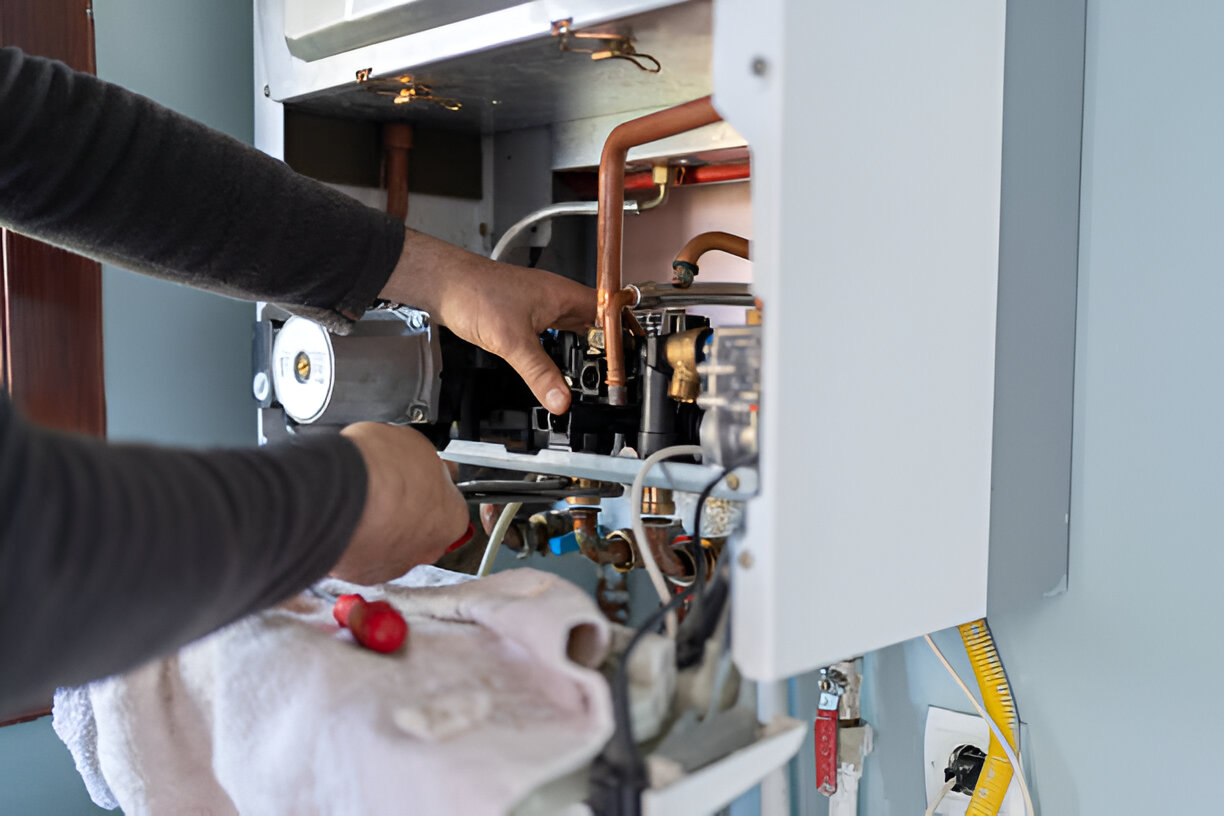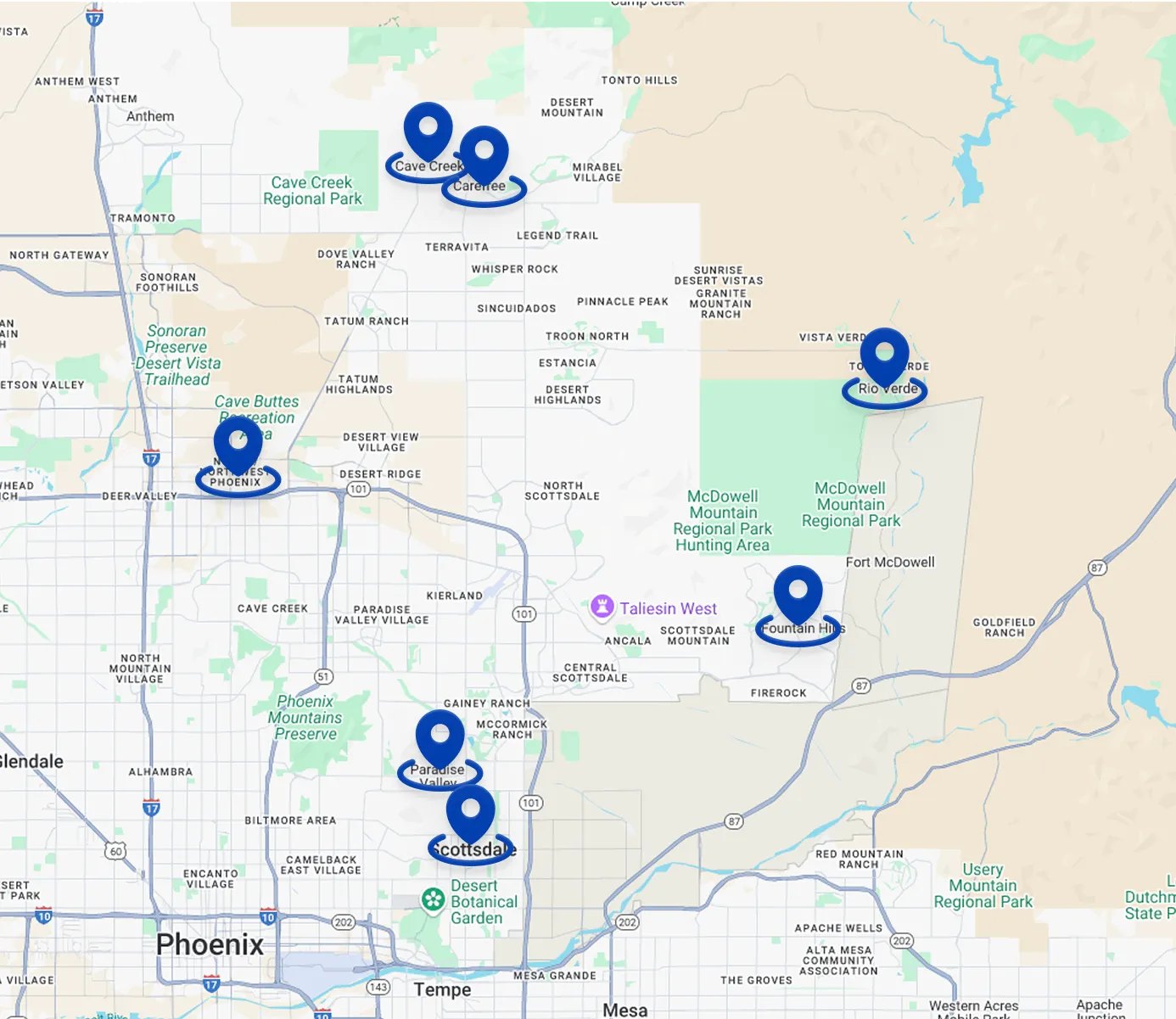Furnace Service in Fountain Hills, AZ
A dependable furnace matters in Fountain Hills, AZ, where desert days give way to cool evenings and occasional winter cold snaps. Whether your home uses a gas furnace as primary heat or a supplemental system for chilly nights, comprehensive furnace service keeps systems safe, efficient, and ready when temperatures drop.

Why timely furnace service matters in Fountain Hills, AZ
Fountain Hills’ dry, dusty environment and seasonal temperature swings create specific challenges for residential furnaces. Dust from the Sonoran landscape and seasonal monsoon activity deposits particulate in return ducts and components, while relatively low annual run time can allow ignition components and condensate traps to degrade unnoticed. Regular service reduces safety risks like carbon monoxide exposure, prevents unexpected breakdowns on cold evenings, and helps maintain energy efficiency in homes across Fountain Hills.
Common furnace issues in Fountain Hills, AZ
Owners frequently search for solutions to these problems:
- Won’t start or intermittent operation — pilot/ignitor failure, faulty control board, or thermostat issues.
- Short cycling or frequent on/off — clogged filter, airflow restriction, or oversized unit.
- Weak or uneven heat — failing burners, clogged burners, or ductwork leaks.
- Unusual noises — loose panels, worn blower motors, or failing bearings.
- High energy bills — dirty components, poor combustion efficiency, or lack of maintenance.
- Safety concerns — cracked heat exchanger or improper ventilation causing carbon monoxide risk.
- Older-system failures — worn major components that often require replacement rather than repair.
What a comprehensive furnace diagnostic inspection includes
A full service visit typically begins with a methodical diagnostic inspection to identify root causes, not just symptoms:
- Visual inspection of cabinet, flue, and venting for corrosion or blockages
- Thermostat functionality and calibration check
- Airflow assessment and static pressure check
- Filter condition review and replacement as needed
- Burner and ignition system inspection and combustion analysis
- Heat exchanger inspection for cracks or signs of stress
- Safety controls and limit switch testing
- Carbon monoxide and combustion-gas checks to verify safe operation
- Electrical checks including capacitors, relays, and wiring integrity
Technicians document findings and explain which repairs or maintenance steps are required to restore safe, reliable operation.
Routine maintenance tasks included
Regular maintenance focuses on cleaning, adjustment, and preventive replacement:
- Replace or clean air filters to ensure proper airflow and indoor air quality
- Clean burners, flame sensors, and ignition assemblies for reliable starting and clean combustion
- Clean and lubricate blower motor and wheel to reduce wear and noise
- Inspect and tighten electrical connections, test capacitors and relays
- Check and clear condensate lines on high-efficiency units
- Inspect and seal visible duct connections to minimize heat loss
- Test safety shutoffs and carbon monoxide detectors for peace of mind
Well-executed maintenance reduces emergency repairs and keeps efficiency high, which matters in Fountain Hills where even moderate heating use should be as economical as possible.
Common repair procedures explained
When diagnostics reveal failed or worn parts, typical repair procedures include:
- Ignitor or pilot replacement — common cause of no-start conditions on gas furnaces.
- Blower motor or capacitor replacement — addresses weak airflow or noisy operation.
- Control board or thermostat repair/replacement — resolves communication and cycling problems.
- Limit switch or flame sensor replacement — fixes safety cutouts and misfires.
- Heat exchanger evaluation — minor cracks require careful assessment; significant damage usually means replacement for safety.
- Ductwork sealing or repair — improves heat delivery and reduces energy waste.
Technicians prioritize repairs that restore safety and reliability; when major components like the heat exchanger or a failing furnace approach end of life, replacement may be recommended.
Parts, labor, and financing overview
Professional furnace service includes parts and labor performed by trained technicians. Exact repair scope is based on diagnostic results and system condition. Flexible payment and third-party financing options are commonly available to help manage larger repairs or replacement projects, allowing homeowners to address critical issues without compromising safety or comfort. This information is presented so homeowners can plan financially if major repairs or upgrades are required.
Emergency and same-day response options
Fountain Hills homeowners may experience furnace failures during evenings or sudden cold spells. Many service providers offer emergency or same-day response options to reestablish heat and safety quickly. Emergency visits typically prioritize safety checks (CO testing, gas shutoff verification) and temporary fixes when parts are needed to return systems to service until a full repair can be completed.
Technician qualifications and licensing
Reliable furnace service in Arizona should be performed by licensed, insured HVAC technicians who follow local codes and manufacturer guidelines. Look for technicians with:
- State contractor licensing or certification appropriate for HVAC work
- Recognition or certification such as NATE or manufacturer-specific training
- Ongoing training in combustion analysis, carbon monoxide testing, and newer high-efficiency furnace technologies
- Liability insurance and worker coverage for homeowner protection
Qualified technicians explain findings in plain language, show safety test results, and document work performed.
Energy-efficiency and comfort tips for Fountain Hills homes
Small changes can make a noticeable difference for winter comfort and operating costs:
- Install a high-efficiency, programmable or smart thermostat and set conservative heating schedules
- Replace filters every 1–3 months depending on dust load and home occupancy
- Seal and insulate accessible duct joints and attic penetrations to prevent heat loss
- Schedule annual furnace tune-ups before the heating season to catch issues early
- Consider upgrading to a high-efficiency furnace or sealed-combustion model when major repairs are needed
- Ensure carbon monoxide detectors are installed and maintained near sleeping areas
These steps help Furnace Service in Fountain Hills, AZ deliver longer equipment life and steadier, more efficient performance.
Final notes on value and safety
Comprehensive furnace service protects household safety, improves comfort on cool Fountain Hills nights, and preserves equipment value. Regular inspections and timely repairs reduce the risk of emergency breakdowns and carbon monoxide hazards while helping systems run efficiently in a dusty desert environment. Well-documented service records also support smart decisions about repairs versus replacement as furnaces age.
Customer Testimonials
Hear directly from our customers about the quality, honesty, and care we bring to every job.










